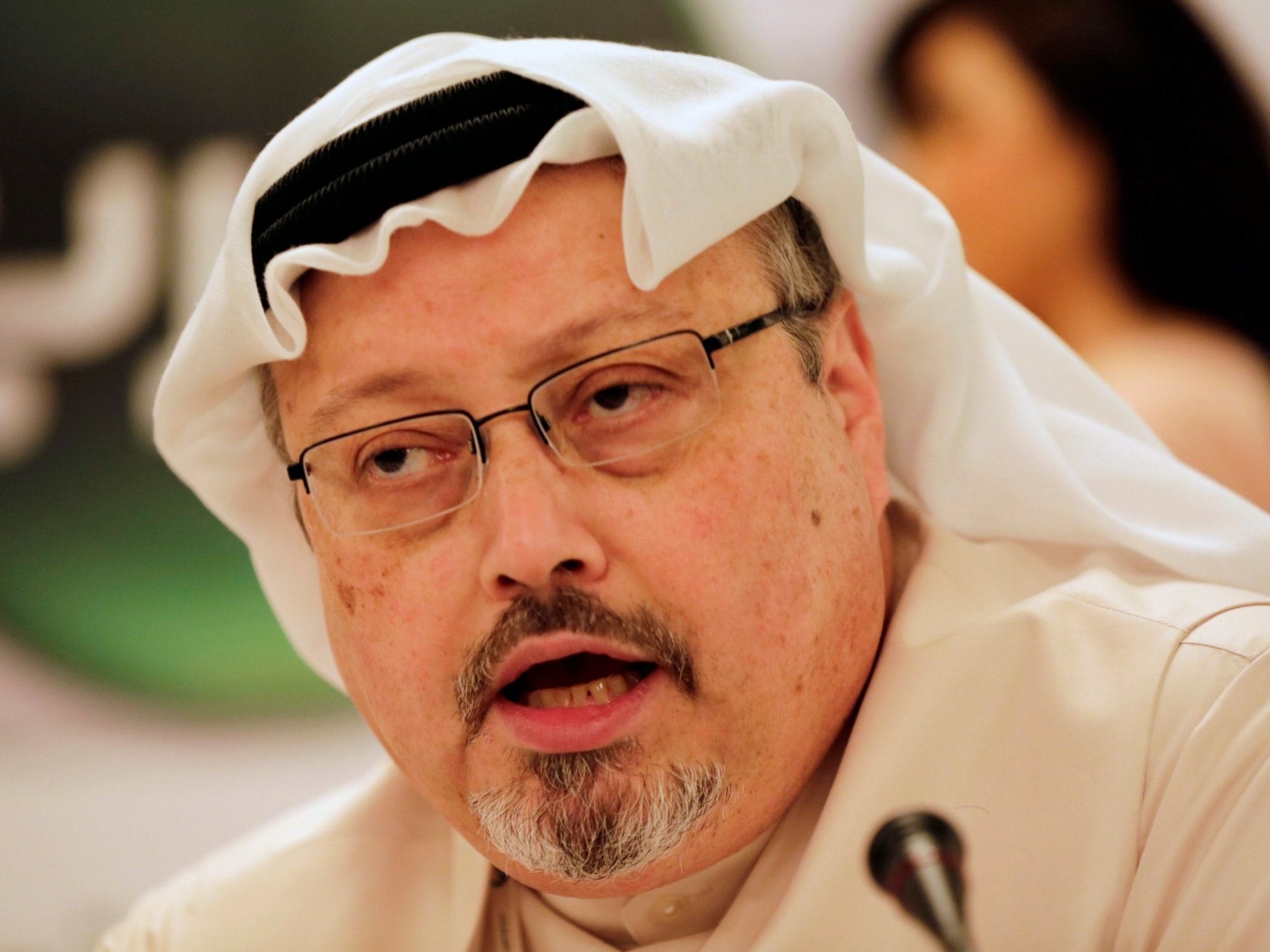Dissident Saudi journalist disappears during visit to consulate in Turkey
‘It’s a clear message: We’re going to get you wherever you are,’ says one dissident
Your support helps us to tell the story
From reproductive rights to climate change to Big Tech, The Independent is on the ground when the story is developing. Whether it's investigating the financials of Elon Musk's pro-Trump PAC or producing our latest documentary, 'The A Word', which shines a light on the American women fighting for reproductive rights, we know how important it is to parse out the facts from the messaging.
At such a critical moment in US history, we need reporters on the ground. Your donation allows us to keep sending journalists to speak to both sides of the story.
The Independent is trusted by Americans across the entire political spectrum. And unlike many other quality news outlets, we choose not to lock Americans out of our reporting and analysis with paywalls. We believe quality journalism should be available to everyone, paid for by those who can afford it.
Your support makes all the difference.A prominent Saudi journalist and harsh critic of his country’s ambitious young Crown Prince entered the Saudi consulate in Istanbul on Tuesday to sort out some paperwork.
Then he vanished.
Now family, friends, and Turkish authorities are searching for 59-year-old Jamal Khashoggi, who contributes regularly to The Washington Post and appears frequently on television.
He has been in self-imposed exile since the ascent of Mohammed bin Salman, the Saudi crown prince who has shaken up the kingdom with political and social changes as well as a sweeping crackdown on dissidents and rival royal family members.
But the disappearance of Mr Khashoggi may signal a new level of brazenness by Saudi security forces seeking to silence opponents and critics at home and abroad.

“It’s a clear message,” said Omar Abdulaziz, an outspoken Saudi dissident in Canada. “‘We’re going to get you wherever you are. And if we can’t get you, we’re going to harm your family.’”
Calls and emails to Saudi missions in London, Washington, and Istanbul yielded no information about Mr Khashoggi’s whereabouts. A Turkish official told The Independent he likely remained inside the facility. "According to information we have, this individual who is a Saudi national is still at the consulate as of now," Ibrahim Kalin, spokesman for Turkish president Recep Tayyip Erdogan, told reporters on Wednesday.
Mr Khashoggi served for years as editor-in-chief of the Saudi daily Al-Watan, speaking frequently to western journalists as a defender of the Saudi system. He was quick-tempered, sharp-witted, and well-connected.
“He started early as a Saudi insider and continued to work very closely with the Saudi ruling family, and be their defender,” said Ali al-Ahmed, a Saudi dissident based in Washington. “He was a Saudi mouthpiece.”
But he left the country when his faction lost out in palace intrigues following the rise of Saudi King Salman, who named his son Mohammed bin Salman Crown Prince. He eked out a career in the US as a commentator and writer on Saudi affairs, becoming increasingly critical of the Saudi leadership.
Mr Khashoggi needed to finish up some paperwork ahead of his marriage to his Turkish fiancee. He visited the Saudi consulate in the leafy Levent district of Istanbul on Friday, but was told to return Tuesday at 1.30pm.
From the start, he was concerned about stepping onto Saudi soil by entering the consulate, said Turan Kislakci, a friend and fellow member of the Turkish Arab Media Centre, a new organisation. His fiancee took his laptop, mobile phone, and other valuables before he walked in.
“He was a little nervous,” said Mr Kislakci. “He told her if he didn’t show up after a few hours, call the Turkish Arab Media Centre and Turkish authorities.”
Hours went by. His fiancee began to grow alarmed when he didn’t emerge. Calls to the consulate were made. Officials inside said Mr Khashoggi had already left. Turkish police arrived and reviewed camera footage, showing he had never left the building, said Mr Kislakci.
“We believe he’s still inside,” said Mr Kislakci. “There was no sign that he was taken out in a black car or something. Maybe they are interrogating him.”
The Washington Post, to which he contributes a regular column, has also failed to locate him. “We have been unable to reach Jamal today and are very concerned about where he may be,” Eli Lopez, an editor, said in a statement. “It would be unfair and outrageous if he has been detained for his work as a journalist and commentator.”
Under the new crown prince, Saudi Arabian security forces have grown increasingly bold. The country sparked international outrage last year when it lured Lebanon’s prime minister Saad Hariri to Riyadh, and then placed him under house arrest, freeing him only after French president Emmanuel Macron personally travelled to the kingdom to intervene.
This week the judiciary charged a prominent economist and businessman critical of the Crown Prince’s financial schemes with treason and terrorism.
But the apparent detention of Mr Khashoggi abroad may represent a new Saudi security doctrine.
“This will add to the fear that Saudi Arabia is all-powerful, and can get to anybody,” said Mr Ahmed.
In an effort to silence Canada-based activist Mr Abdulaziz, Saudi authorities arrested his brothers and friends about a month ago.
Then, recently, he discovered that he was the victim of a sophisticated phone hacking attempt that was likely rooted in Saudi Arabia. Canada, which has strained relations with Riyadh, is reviewing the matter.
“The Saudi government has reached another level,” he said. “Now they are more violent. They would do anything to stop activists, to stop journalists, writers. They’ve jailed thousands of them. They came after my family.”

Join our commenting forum
Join thought-provoking conversations, follow other Independent readers and see their replies
Comments